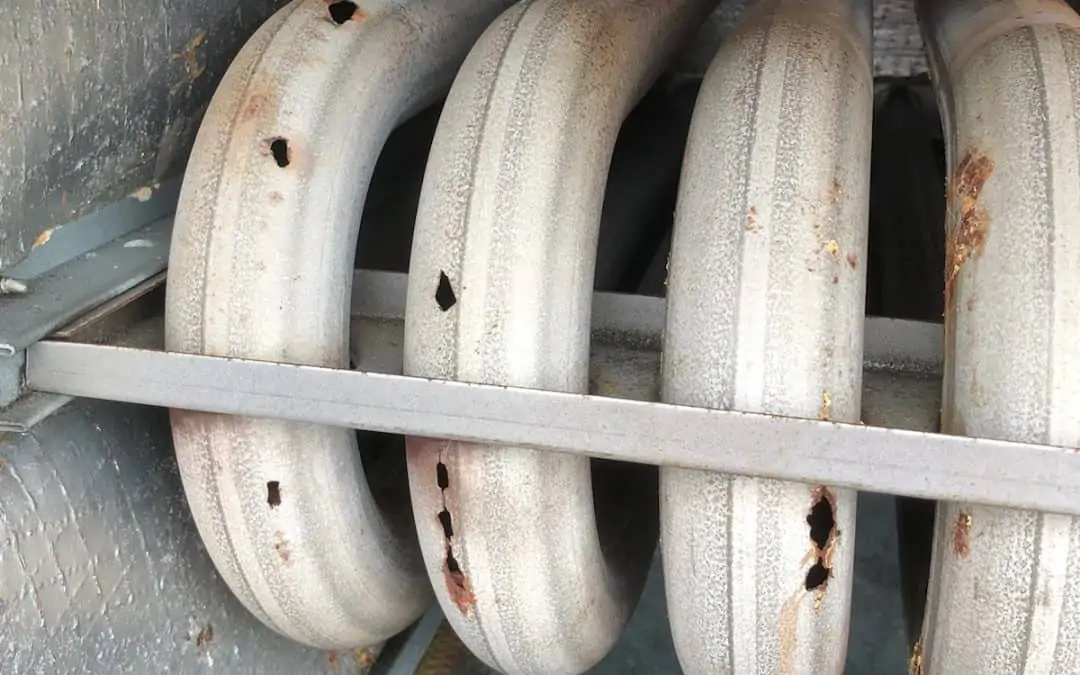Many homeowners in Ann Arbor and throughout SE Michigan use natural gas furnaces to heat their homes during the cold winter months. Gas furnaces keep your home nice and toasty but also help you save when compared to the cost of an electric furnace.
While they are commonly used to heat homes around the country, like any appliance that operates using natural gas, a gas furnace can present safety hazards. This is especially true of those that are 15 years old or older, and having your furnace inspected regularly will ensure any issues such as a cracked heat exchanger are diagnosed early on.
A cracked heat exchanger is the most common reason carbon monoxide or toxic gasses may escape into homes using a gas furnace. Most newer models are equipped with special safety features that keep risks down; however, it’s important to be informed about potential dangers.
What is a heat exchanger?
The heat exchanger is the area where the furnace heats the air and is an integral component of your gas furnace. Basically, the air is heated as it travels through the ventilation system by combustion gas heat that moves to the air from the blower fan. A metal chamber, the heat exchanger is where combustion gas collects and heats the metal walls, allowing the air generated by the blower fan to heat as it passes around the exchanger before being delivered into your home via ducts.
What is the danger of a cracked heat exchanger?
As it heats and cools, the heat exchanger’s metal chamber expands and contracts. A crack can form after years of expanding and contracting, which could allow carbon monoxide and other harmful gasses to escape into your home. Corrosion is another concern and happens when the metal becomes weak due to the reaction between the metal and combustion gas. This can result in small cracks; however, combustion gasses can escape through the tiniest cracks.
Are there any warning signs that may indicate a cracked heat exchanger? If you notice a clicking noise shortly after the blower shuts off, it’s essential to have your furnace checked out. Install a carbon monoxide alarm, and inspect your furnace regularly to see if you notice any corrosion.
It’s a good idea to have your gas furnace inspected before the winter season arrives to make sure it’s in good working order. If you live in Southeast Michigan, give Haley Mechanical a call for reliable, expert service!
